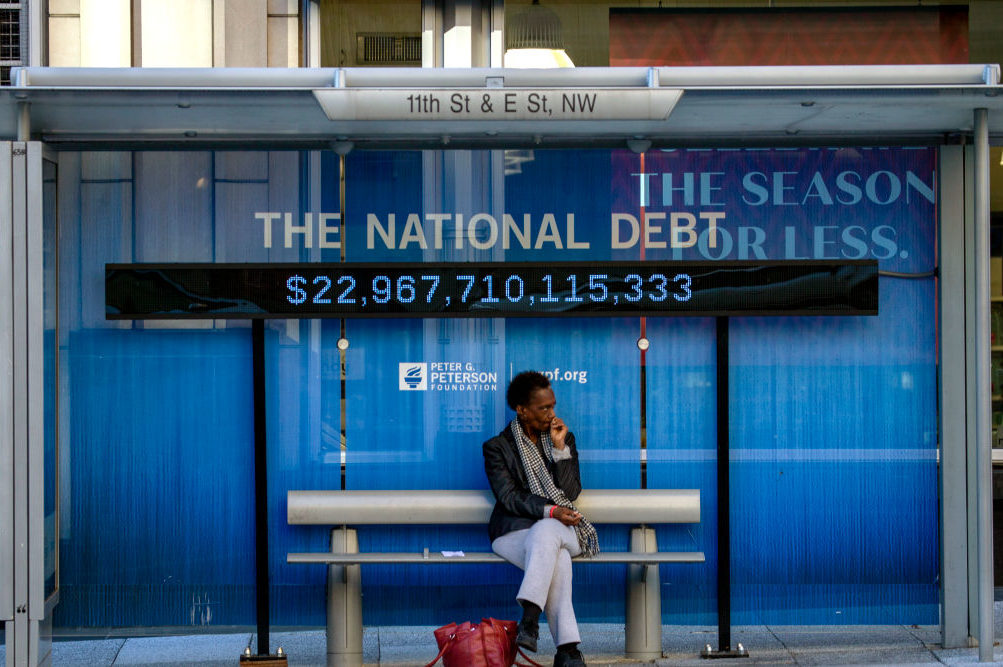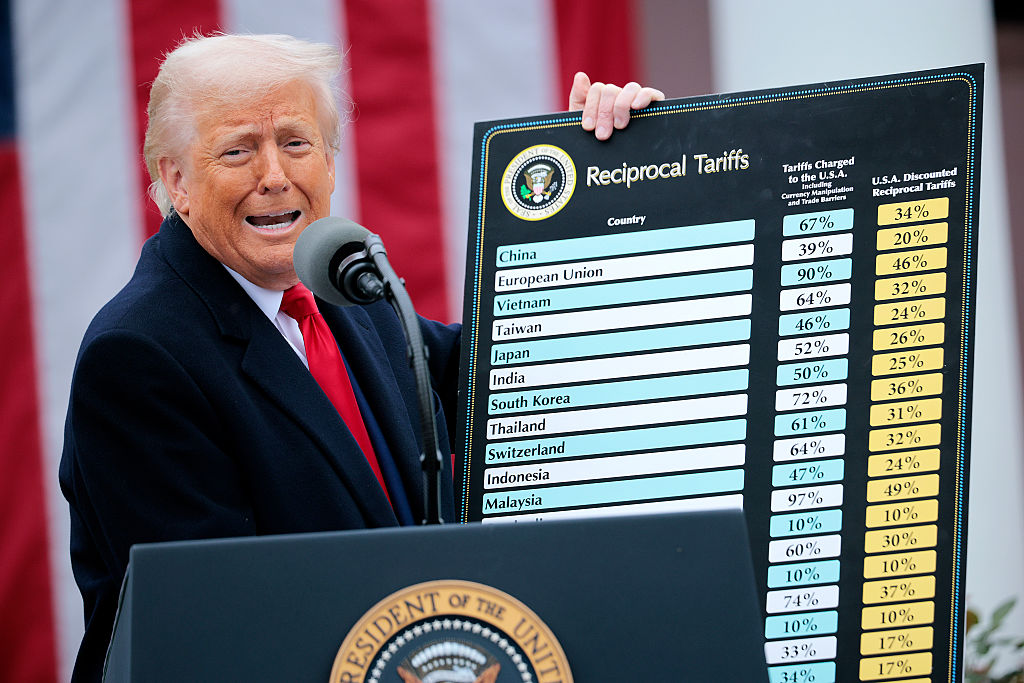President Donald Trump will enter an election year with the threat of impeachment still hanging over him. Yet in most respects his administration is in a far better position than his critics could have imagined when he took office nearly three years ago.
Economic growth, while in retreat in recent months, remains ahead of that of other developed countries. Stock markets, which Nobel Prize-winning economist Paul Krugman said might ‘never recover’ from Trump’s election, are at near-record highs. Where Trump’s opponents feared that his bellicose language would spark a nuclear conflict in North Korea, he defused the situation. His approach to foreign policy may be incoherent, but it hasn’t yet proven to be disastrous.
Yet Trump has one very big failure to his name, of which too little is said. He has turned out to be fiscally irresponsible. The deficit in the federal budget has nearly doubled in his time in office, from $585 billion in 2016 to just under $1.1 trillion for the year to December. True, it is still less than the $1.4 trillion deficit that President Barack Obama ran in 2009, but there is a very big difference. Obama came into office when the country and the world were in the middle of the deepest recession since the 1930s. Tax receipts were low; welfare bills were high. Trump, though, has presided over a strong economy. There is no excuse for government to be running a deficit of any kind when the economy has enjoyed a decade of unbroken expansion. But to be overspending to the extent that Trump is doing is to invite disaster when, as is pretty well inevitable, economic growth does eventually turn negative.
There was a time when Trump seemed to understand this. During his election campaign in 2016 he promised to eliminate the deficit over eight years. Instead, it is now forecast to grow until well into the 2020s. He has reneged on a very important promise that ought to have been easy to keep. Too few commentators are calling him out for this failure.
;768:[300×250,336×280,320×100];0:[300×250,320×100,320×50]”]Democrats who endlessly try to search for improprieties over which to impeach the president overlook the very issue which could do him most harm among blue-collar Republican voters. Recklessness with the national finances does not tend to go down well with people for whom living within their means is a daily preoccupation. It is all very well offering people tax cuts, but unless you are going to cut spending accordingly, then no one is going to be very impressed.
Fiscal conservatism ought to be one of the Republicans’ greatest strengths, but it is a reputation that has been lost over the past two decades. The last president to run a surplus was Bill Clinton in his second term. George W. Bush at least had the excuse of the war against terror for going into the red. Trump has faced no unexpected expenditure. He has been noninterventionist in foreign affairs and has not been forced into military response through an attack on US soil. US taxpayers ought to be enjoying a peace dividend — not tax cuts put on the nation’s credit card.
Run deficits year after year and eventually a day of reckoning will come. The world might not want to fund US government debt forever. Investors might start demanding much higher rates of interest, forcing up the price of debt and necessitating deep spending cuts. While a nation with its own sovereign currency need never actually go bust, as it could in extremis print its way out of problems, it is not a route to be recommended — as Germany found to its cost in the 1920s, and, more recently, Robert Mugabe’s Zimbabwe.
Trump must know that eventually the US will have to stop spending and rein in its debt. But it is quite possible that he sees that day as too far beyond his personal political horizon for him to be bothered. Trump’s business experience was supposed to be one of his strengths. But his attitude is that of the chief executive who can see retirement looming and is tempted to bet the company’s future on a surge of debt-fueled growth, knowing that if he pulls it off the rewards will come quickly and if not, it will be his successor’s mess to clear up.
Trump is not the only world leader who has been tempted into running perpetual deficits. In Britain, a decade of so-called ‘austerity’ failed to eliminate the deficit — and now Boris Johnson’s government has turned on the spending taps again. Years of low — and now even negative — interest rates have made governments complacent. However good their intentions, they inevitably find it politically easier to spend money than to raise revenue. Borrowed money seems, for the moment at least, to be virtually free. But it cannot remain that way forever.
;768:[300×250,336×280,320×100];0:[300×250,320×100,320×50]”]It is worrying enough that Trump is running such high deficits during the good times, but more disturbing still is that his opponents, although desperate to remove him from office, seem scarcely to have noticed this particular failing. A Democratic party a little less obsessed with digging around for presidential conspiracies and a little more eager to call out Trump for bad housekeeping might have a better chance of defeating him in 2020.
This article was originally published in The Spectator’s December 2019 US edition. Subscribe here.

























